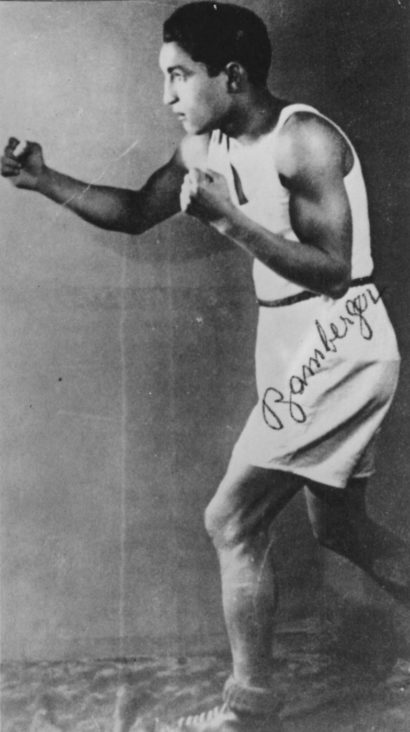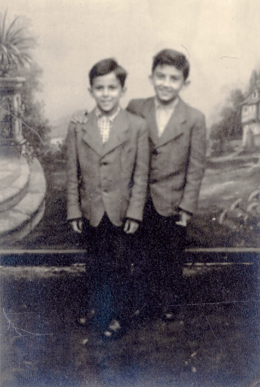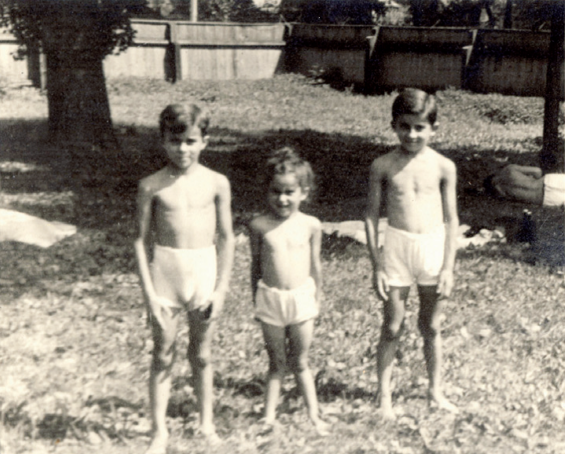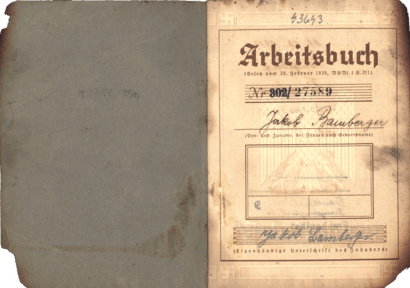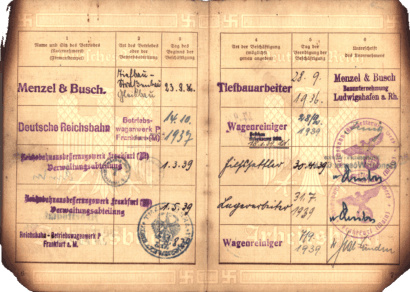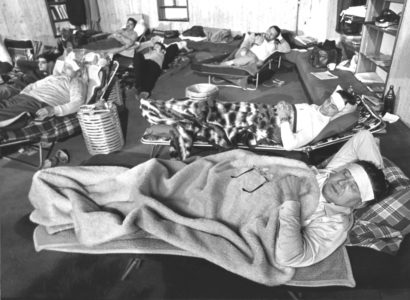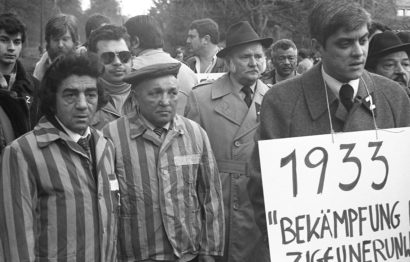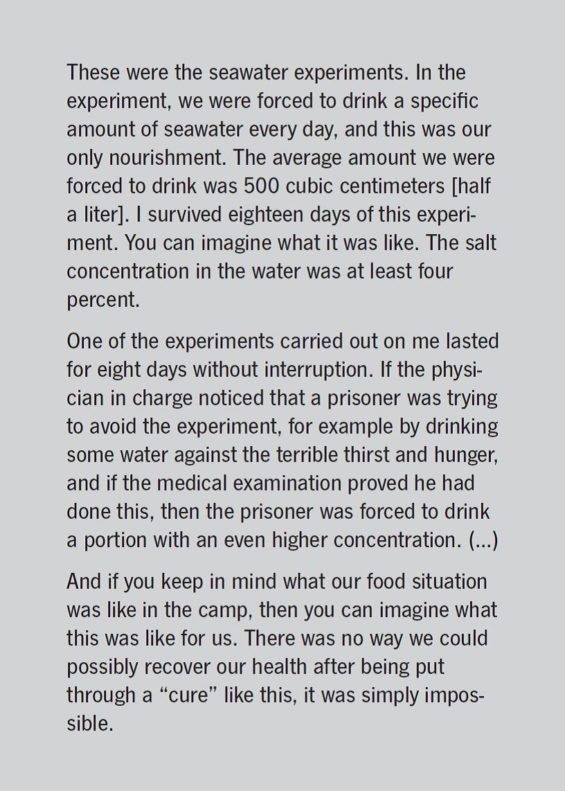Jakob "Jonny" Bamberger
born December 11, 1913
![]()
Jakob Bamberger, 1930s (Documentation and Cultural Center of German Sinti and Roma, Heidelberg)
Decades of Struggle for Recognition and Compensation
Jakob Bamberger was born in Königsberg in eastern Prussia. His parents operated a traveling cinema in the countryside. His father also traded horses. In 1935, the Sinti and Roma were prohibited from traveling, and the family was forced to give up the cinema. Jakob Bamberger was working for the railway in Frankfurt am Main. He was also an amateur boxer in his free time. He was the German flyweight runner-up, and was selected to be a member of the Olympic team in 1936.
![]()
A family photo of Jakob Bamberger, 1936–1940 (Yad Vashem, Jerusalem)
![]()
A family photo of Jakob Bamberger, 1936–1940 (Yad Vashem, Jerusalem)
The Sinti and Roma were subjected to increasing persecution. In 1941, Jakob Bamberger was preparing to flee to Prague. Instead he was arrested and brought to the Flossenbürg concentration camp in January 1942. He was assigned to work in the punishment company in the camp quarry. One year later, he was transferred by the SS to the Dachau concentration camp. In the Dachau sick bay, he was subjected to the seawater experiments. After these weeks of torture, he was put to work in a subcamp manufacturing Messerschmitt aircraft. Several weeks before the end of the war, he was deported to Buchenwald. In a chance meeting, he found his father, who was also a prisoner at Buchenwald. In April 1945, Jakob Bamberger was liberated by the Americans on a transport from Buchenwald to Flossenbürg.
![]()
Work book belonging to Jakob Bamberger (Yad Vashem, Jerusalem)
![]()
The prisoners were forced to turn over all their personal effects, including their identification cards, upon arrival at the concentration camp.
After the war, Jakob Bamberger worked in clothing retail. His wife, whom he married in Munich in 1947, was also a concentration camp survivor. She died only two years later as a result of health problems due to her incarceration. Jakob Bamberger’s mother and five siblings were killed at Auschwitz. Jakob Bamberger continued to box until he was forced to give up the sport in 1954, at age 41. He had health difficulties as a result of his camp incarceration and the seawater experiments. After years of legal action, he finally obtained a compensation payment in 1969. However, the compensation payment was so low that Jakob Bamberger continued to believe that he had not been given proper reparations. Jakob Bamberger was active in the struggle for the civil rights of the Sinti and Roma, and campaigned for public recognition of the persecution experienced by the Sinti and Roma under National Socialism. He was appointed honorary chairperson of the Central Council of German Sinti and Roma. Jakob “Jonny” Bamberger died in Heidelberg in 1989.
![]()
Jakob Bamberger (second from left) during the hunger strike at the Dachau Concentration Camp Memorial, Easter 1980 (Documentation and Cultural Center of German Sinti and Roma, Heidelberg)
In Easter 1980, a group of former concentration camp prisoners began a hunger strike at the Dachau Concentration Camp Memorial. The strike was a protest against a registration campaign carried out by the police and judicial authorities of the Federal Republic of Germany against the Sinti and Roma, which used the records compiled under National Socialism.![]()
Jakob Bamberger (second from left) wearing a prisoner’s uniform at a demonstration at the Federal Criminal Police Office, January 1983 (Documentation and Cultural Center of German Sinti and Roma, Heidelberg)
![]()
Witness testimony by Jakob Bamberger on the seawater experiments, extract, undated (Dachau Concentration Camp Memorial)
